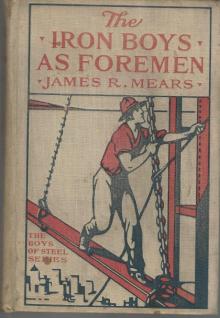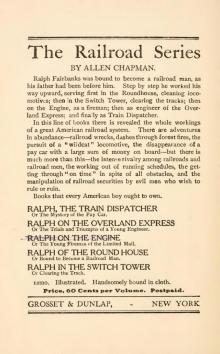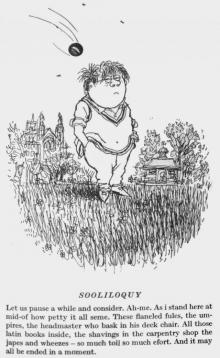- Home
- Mrs. Molesworth
Sweet Content Page 15
Sweet Content Read online
Page 15
scarcely even condescending to notice herfew amiable commonplace remarks. Poor child! her head was always fullof home cares; I think it must have been a treat to her even to walkalong quietly without a lot of "little ones" tugging at her skirt.
"It _is_ a nice day," she observed for about the fifth time. "The boyshave gone to Belton Woods. I hope aunt won't let Prissy go with them,however; she is sure to catch cold if they stay late. November eveningsare so chilly."
"I should think you'd be rather glad for some of them to catch coldsometimes," I said. "It must be a blessing to have a few quiet in bed."
Anna stared at me, then a smile broke over her rather dull face.
"How funny you are, Connie!" she said. "No, I think they're quite asnoisy in bed as anywhere else, except when they're really very ill, andthat, of course, is no laughing matter. But they're all well just now,and really to-day is like September: it _is_ a nice day."
"Yes," I agreed. "It's one of our nicest autumn days. If--if only somethings were different," I added to myself.
We were by this time in the lane, which, after crossing the fields, wasthe nearest way to the Yew Trees. This lane ran into the high road too,so any one coming to the Whytes' _had_ to go some way along it. Just asI spoke--we had climbed over a stile into the lane--I saw coming towardsus, as if going to the Yew Trees from the road, a very curious figure.It was that of a small old woman. She seemed a little lame, yet shewalked pretty fast. But I did not like her look at all; indeed, as shecame nearer and I saw that her face was almost hidden by a lace veil ofa very heavy pattern, and that she had a wig of very black and shinycurls, falling on each side of her cheeks, I felt almost frightened, Iscarcely knew why. She had a long cloak of rusty black silk, and aqueer brown fur "pelerine"--I think that is the old-fashioned name forsuch things. And she seemed to have sprung up so suddenly, that Ialmost felt as if I was _fancying_ her. For the first time thatafternoon I turned to Anna with a sort of friendliness.
"Anna," I said, "do look. Who can that queer woman be?"
"A tramp," Anna began to say. We were used to tramps of all kinds, butstill this description hardly suited the person now closely approachingus. A thought crossed my mind--could it be one of the Whyte boysdressed up to frighten us? But no; they never played such tricks.
"It must be one of those tiresome old things from the Marleyalmshouses," I said. Marley was a village about five miles off. "Iknow how they pester papa. He is far too good to them. Very likely shethinks the Whytes are new-comers, and that she'll get something out ofthem."
And no longer frightened, but rather disgusted, I prepared to walk on,when suddenly a sharp, almost imperious, voice bade me stop.
"Please to tell me if this is the way to the Yew Trees," it said. "TheYew Trees--a cottage where Captain Whyte has come to live. Don't youhear me, child--can't you speak?" For I had been at first too startledto answer; and then, as I took in the meaning of the old woman's words,I grew angry. What right had she to call the Yew Trees--mamma's own oldhouse, which would be _my_ house some day--"a cottage"? And whatbusiness had she to speak to me so sharply--"child," indeed--a dirty oldtramp, or, worse, a cheat, a begging-letter impostor, or something ofthat kind, to speak to _me_ so? For she was addressing me and not Anna,who was a little behind me.
"I don't see that I am obliged to answer every beggar in the road whomay happen to speak to me," I said, very rudely, I must confess. Forqueer as she was, the old woman was plainly not a common beggar.
She came closer.
"Beggar," she repeated, "beggar indeed!" Then she gave a horrid mockinglittle laugh. But suddenly she controlled herself again. "Be so goodas to tell me where Captain Whyte's cottage is."
"It isn't a cottage. It's a large house," I said. "I should know,considering it's mine, or as good as mine."
She started a little, then eyed me curiously.
"Oh!" she exclaimed. "I might have guessed it. Then you are one of theWhyte children; let me see--not the eldest?"
"No; I'm not the eldest. But I don't see what business it is of yourswho I am. Let me go,"--for she had laid her hand--it was covered withan old black kid glove much too large for her--on my sleeve; "let mego," I said, as I felt her holding me more firmly. "You may saveyourself the trouble of going on to the Yew Trees. Captain Whyte andMrs Whyte wouldn't speak to you."
"Indeed," she said with a sneer, "I can quite believe it, to judge bytheir daughter's pretty manners to a poor tired old woman. I could nothave believed it of--He was proud, but you are insolent, I can tell you.It's as well, perhaps, but I wish I hadn't met you, with your fair hairand pretty eyes, just like--Have they never taught you to show respectto age, young lady? I suppose you think yourself a lady?"
"_You_ are insolent," I said, stamping my foot in fury.
"How dare you--get away you dirty old tramp, or I'll send for thepolice."
But at that moment, while the old woman positively glared at me throughher veil, Anna, who had not yet spoken, came close and whisperedsomething in my ear, "I daresay she's insane," Anna said; "you knowthere's an asylum at Wichthorpe. She may have escaped. You shouldnever provoke mad people, Connie."
And she turned to the stranger, and spoke to her gently. "I think youwould get any information you want in Elmwood better than here," shesaid. "Captain and Mrs Whyte have not been here so very long. And--and I think they're rather busy to-day."
The old woman turned to her. She looked at Anna for a moment or twowithout speaking.
"Thank you," she said. "I have changed my mind; I have no wish to paythe Whyte family a visit. I--I think I've had enough of them. And whoare you, pray?" she went on. "You have a civil tongue in your head atleast."
"I'm--my father's the Vicar of Elmwood," said Anna, very frightened, butnot daring not to reply. "He's Mr Gale--if you want anything, Idaresay he could help you. You could ask for the Vicarage."
"No, thank you; but I'm obliged. Yes, I'm obliged to you," said thequeer creature. Then she turned and walked rapidly back the way she hadcome. We lost sight of her, of course, when she turned into the road;but a moment or two afterwards we heard wheels, and looking right on tothe end of the lane, we saw a fly drive rapidly past. We looked at eachother.
"Dear me," said Anna, "it's just as if the fly had been waiting forher."
"Nonsense," I said roughly; "an old beggar like that."
"I don't think she was exactly a beggar," said Anna. Nor did I, at thebottom of my heart.
"Then she was mad, as you said yourself," I rejoined. "But listen,Anna; don't tell them about her at the Yew Trees. I don't want Yvonne'sbirthday spoilt any more. Do you hear, Anna?--you're not to tell."
Anna hesitated. "I don't see that it would spoil the birthday," shesaid; "and perhaps--"
"It would spoil it to _me_," I said, "if you care about that. Of courseyou'd tell them I was rude to the old woman, and they'd be all down uponme. I don't deny I was rude; I've been too vexed by other things to bein a good temper."
"I'm so sorry," said Anna, her kind heart at once touched. "No, I won'tsay anything about it then. The only thing was--are you sure it isn'tanything that matters? Suppose she really had some message for Captainor Mrs Whyte?"
"We didn't stop her going on if she had. At least I only told her theywouldn't be bothered with her, and you said they were busy to-day. Thatwouldn't have stopped her if it was anything real."
"N-no, I suppose not," said Anna. She was very slow at seeing things,and I could generally overrule her, in the first place, any way. So,though she was plainly not quite satisfied, she gave in.
I felt a little conscience-stricken myself, to own the truth. I knew Ihad behaved inexcusably to the strange old woman, and the consciousnessof this made me gentler and more conciliatory, so to speak, than I mightotherwise have been. So the birthday party went off peacefully, and onthe whole, pleasantly, though somehow not as merrily and cheerily as wasusual with the Whytes' simple festivities. Evey was very pleas
ed withthe monogram brooch, so pleased that I could afford not to feel jealouswhen she warmly thanked Anna for her present of a neat and well-made,but extraordinarily ugly, toilet-pincushion. And I was able heartily toadmire the other presents, all from her own family, and mostly of homemanufacture.
"Evey's _best_ present hasn't come yet,"

 The Iron Boys as Foremen; or, Heading the Diamond Drill Shift
The Iron Boys as Foremen; or, Heading the Diamond Drill Shift An Enchanted Garden: Fairy Stories
An Enchanted Garden: Fairy Stories Grandmother Dear: A Book for Boys and Girls
Grandmother Dear: A Book for Boys and Girls Ralph, the Train Dispatcher; Or, The Mystery of the Pay Car
Ralph, the Train Dispatcher; Or, The Mystery of the Pay Car The Children of the Castle
The Children of the Castle The Magic Nuts
The Magic Nuts Uncanny Tales
Uncanny Tales Silverthorns
Silverthorns The Third Miss St Quentin
The Third Miss St Quentin Christmas-Tree Land
Christmas-Tree Land Philippa
Philippa Jasper
Jasper The Little Old Portrait
The Little Old Portrait Mary: A Nursery Story for Very Little Children
Mary: A Nursery Story for Very Little Children Us, An Old Fashioned Story
Us, An Old Fashioned Story The Constant Prince
The Constant Prince Blanche: A Story for Girls
Blanche: A Story for Girls The Cuckoo Clock
The Cuckoo Clock The Carved Lions
The Carved Lions Tell Me a Story
Tell Me a Story That Girl in Black; and, Bronzie
That Girl in Black; and, Bronzie Sweet Content
Sweet Content Boys and I: A Child's Story for Children
Boys and I: A Child's Story for Children The Man with the Pan-Pipes, and Other Stories
The Man with the Pan-Pipes, and Other Stories Bert Wilson's Fadeaway Ball
Bert Wilson's Fadeaway Ball Nurse Heatherdale's Story
Nurse Heatherdale's Story Adventures of Herr Baby
Adventures of Herr Baby Shaggycoat: The Biography of a Beaver
Shaggycoat: The Biography of a Beaver Adventures of Prince Lazybones, and Other Stories
Adventures of Prince Lazybones, and Other Stories Adventures of Piang the Moro Jungle Boy
Adventures of Piang the Moro Jungle Boy